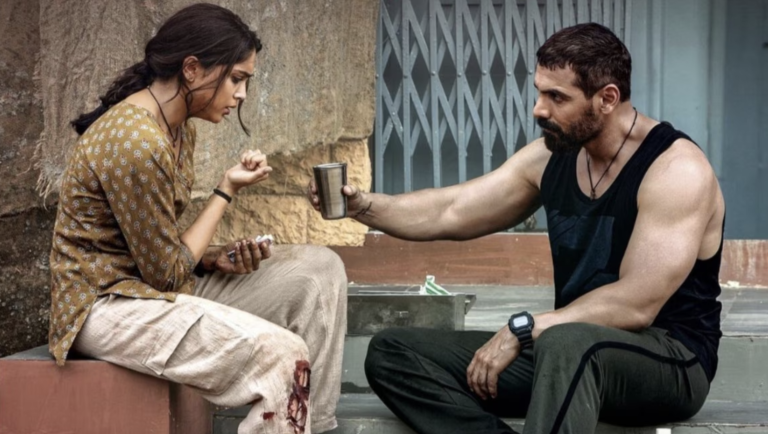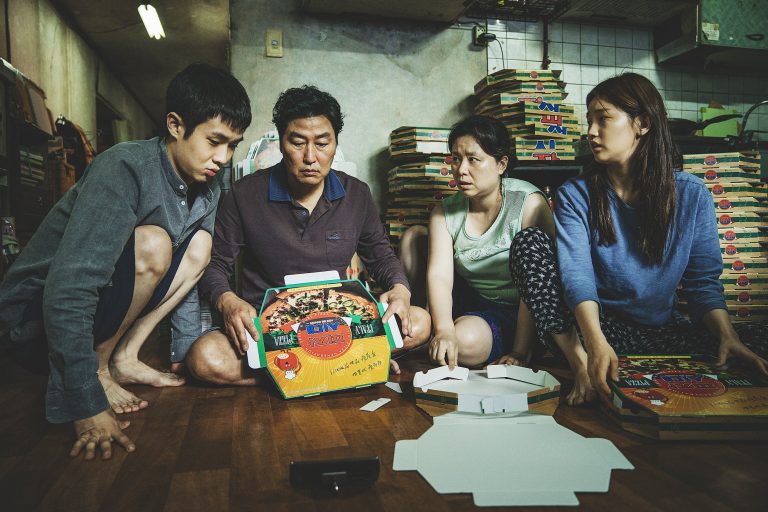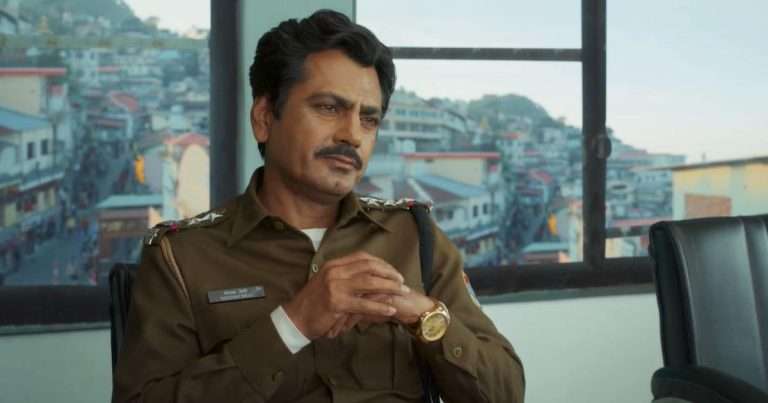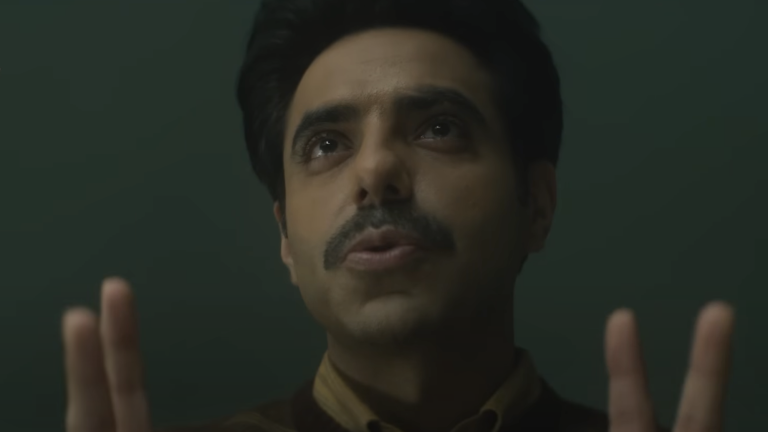One of our favourite hidden gems from this year’s Cannes Film Festival was Anne Émond’s “Peak Everything” (“Amour Apocalypse”). It’s an eccentric rom-com about climate anxiety, the language divide in Canada, and the impending apocalypse. High On Film’s Shivam Pota was able to sit down with the director to discuss how the project came to be, environmentalism on film sets, and keeping optimism despite it all.
Shivam Pota: Congratulations on a fantastic film. It was a great time and a very refreshing watch. The film tackles quite a few pressing issues, including climate anxiety. Do you feel filmmakers have a responsibility to tackle these issues, especially because governments and institutions are failing to address these matters?
Anne Émond: Thank you so much. 15 years ago, I wrote in my notebook that at some point, filmmakers would have to talk about climate change in the movies. I didn’t do it for 15 years because I believed nobody wanted to hear about that, you know?
It’s depressing. We hear every day in the news how bad it’s going. At some point, right before the pandemic, something hit me, brutally. I had more time, I listened to a few podcasts and read a lot of books /articles. I realised, oh, it’s not going well, and I got obsessed with it. I realised, I’ve got no choice, this is something I have to talk about. Even if it’s a subject matter that not a lot of people want to hear about. I’m going to find a way to make people want to watch this film and confront this topic.
So I decided it would be a love story, and it would be funny, absurd, and crazy. While also finding a way to talk about it. In all honesty, I feel like Adam (the main character). I’m lost, I don’t get it, and sometimes I’m very distressed. I’m very eco-anxious. I’m all of the things he is, and I thought there must be a funny and tender way to talk about this.
Shivam Pota: The idea first started 15 years ago in a notebook. How did you find yourself deciding on the story of a dog walker and a call centre employee?
Anne Émond: I wanted to put Adam, my character, in the middle of many complicated situations. So, falling in love with an English-speaking woman is another challenge he has to face. He has to fight a little bit more. He has to travel and hit the road to find her. Also, the dogs for me are super significant. I feel that they are better friends to Adam than humans. They are nicer to him, and they are sweet to him; there’s a real friendship between Adam and the dogs.
But also, they are in cages, which isn’t good. He treats the dogs well, but still. I believe we shouldn’t domesticate animals like this. We forget that we ourselves are animals, a little bit. So at the end, when he frees the dogs, it’s super significant to me. I’m not sure the dogs will survive, though, but I hope they do. I hope they do.
Shivam Pota: I found the maturity and the optimism throughout the film to be strikingly refreshing. You’re tackling some harsh issues: Mental health and climate anxiety. It’s something that weighs on people’s minds. It’s something hard not to have a nihilistic outlook on, and yet the film subverts expectations with its optimism. Was this always the intended approach?
Anne Émond: To be honest, there are two answers. In life, I am very, very pessimistic. I don’t think we are making good decisions right now, and I myself find life complicated and difficult, but everyone around me will say that I’m quite funny. I make jokes all the time, I’m not serious, I’m stupid, I do like really stupid jokes. Maybe because life is difficult, so it’s a way of coping with that. For me, it makes sense, the film can be funny and depressing at the same time, in fact, it’s a very helpful storytelling tool for me.
I was feeling quite bad when I had the idea for the film. I was turning 40, like four or five years ago, and I was going through depression. I didn’t even know it could happen to me. I was trying everything, like Adam does in the film. Running, sports, eating well, and sleeping well. I even tried meditation, which I didn’t like, but I tried many, many things.
At some point, I realised it was a clinical issue. I now believe in it. I used to think that you could heal yourself, but when you’re in a true state of depression, you can’t. There’s nothing you can do. So that’s why I wrote the film with a sense of humour, because I was so depressed. I told myself I could not write a depressing film when I was this sad. I even started to write the film to kind of save myself from this darkness.
Shivam Pota: Cinema as a form of therapy?
Anne Émond: Well, yeah, kind of. But I also thought it could be therapy for other people. I was thinking, well, if it’s good for me, maybe people will think it’s good for them.
Also Read: 5 Liberating and Unconventional Love Stories in Hindi Cinema
Shivam Pota: The film is very eco-conscious. What was the experience on set like, and how did you make sure that the set was also eco-conscious?
Anne Émond: The set was eco-conscious. There are more and more programs focused on this, and we had a very good producer and a very good line producer who decided that it was important and that we would put time and money into that. In this way, I believe we did okay. But, to be honest, everything we do uses resources. We’ve got big trucks on what was a big shoot. Even though the film wasn’t that big, it was tough to be perfect. But, I strongly feel we need to do films, films, and art is one of the best things to come from humanity.
We’ve destroyed so many things, but we can’t stop making films, art is too important. However, there are things that we can change within film, like this festival for example (Cannes). It’s my first time here, and I love it – I don’t want it to end, but it is quite over the top. The dresses, money, and boats, just so much excess. It’s over the top, it’s huge. So maybe we could slow down a bit more and be more restrained. That’s what I think, I don’t want things like this to end, we should kill other events before we kill film festivals.
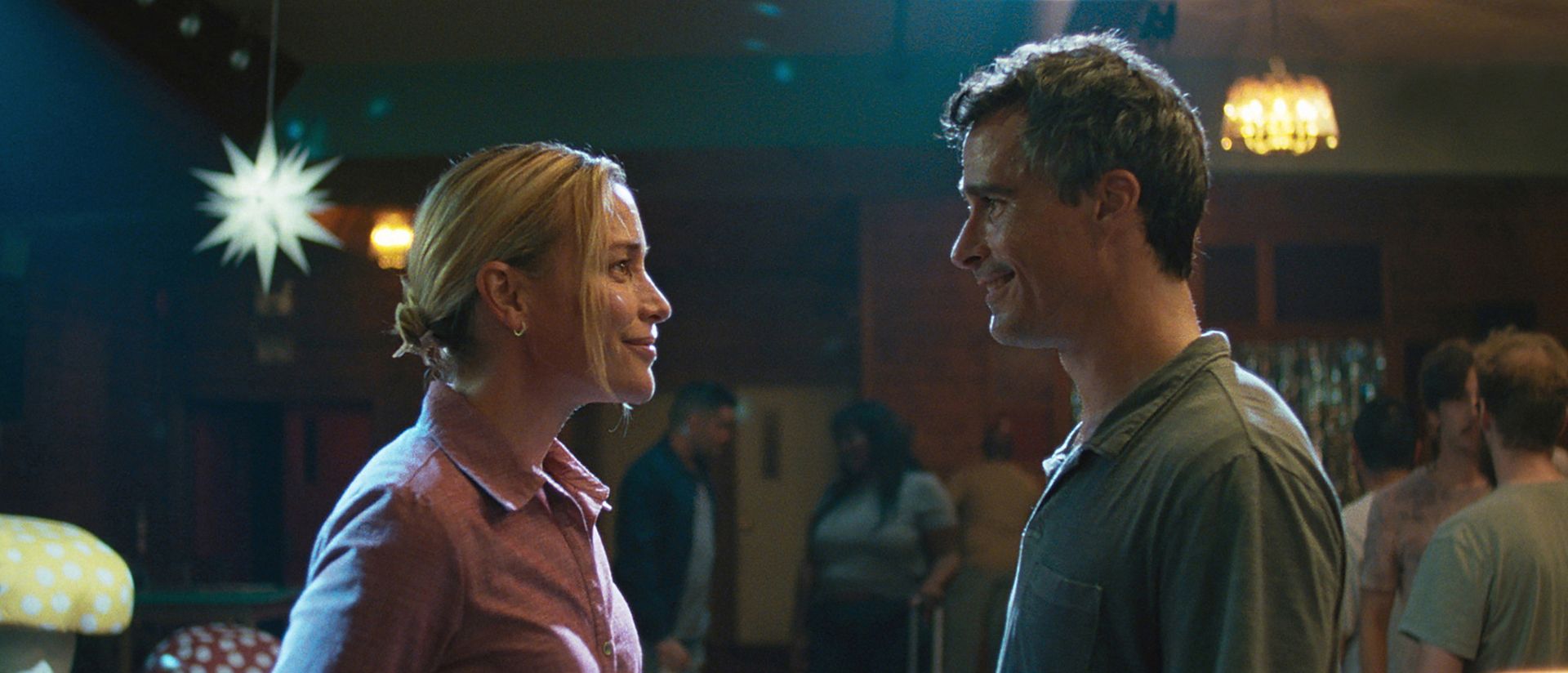
Shivam Pota: The film is so incredibly well cast. What was the process like? Did you adjust the script to fit the talent better? Or did you get incredibly lucky with who you got?
Anne Émond: No, I wrote the script, and then I just found the actor, and we’ve been so lucky. Patrick Hivon, who plays Adam, is super well-known in Montreal. Everyone loves him because he’s so great and lovable. And in fact, the more I know him, the more I discover he is a lot like Adam. They have a lot in common. And Piper Perabo as Tina, we were so lucky. She’s American, and she arrived in Montreal four days before shooting.
We met on the phone a week before. I decided to offer her the part because I re-watched Christopher Nolan’s “The Prestige,” and it’s all about Scarlett Johansson and everything, but I was like, oh my God, this actress, she looks so nice and so sweet. And I think Tina should look like that. And we were so lucky because she’s really like that. She’s very, very, very sweet and a nice person, which is rare these days. I think we’re all becoming crazy, so yeah, we’ve been lucky to find such nice people.
Shivam Pota: How did you decide to depict the two parts of Canada? Because there’s the French Canadian side and then there’s the English-speaking Canadian side. There’s a clear distinction in how it looks, how it feels, how they talk, and how they act. What was that process like? And do you feel that that’s not really been explored in cinema yet?
Anne Émond: It’s very rare to see the divide between the Canadian French part and the English-speaking part. It’s a big country. It’s one of the parts of Canada that we don’t talk too much about with each other. It’s supposed to be a bilingual country, but it’s not really. I found this to be very interesting because we never talk about these topics on film.
The action of the film takes place in a very small town that is incredibly Quebecois. The father in the film speaks with such a strong accent that even the French couldn’t understand him. And adding this element brings another layer of challenges for Adam to deal with. I wanted to put Adam in the worst situation possible. With his young Gen Z employee, the dad, and then he meets Tina, who is so nice, but only speaks English, and lives so far away. I wanted to make everything an adventure for Adam.
Shivam Pota: And when creating this adventure, what would you say is the biggest challenge you faced as a filmmaker in the whole process?
Anne Émond: I think a lot of the challenges stemmed from the fact that the film I wanted to make wasn’t a normal one. In a normal film, maybe at the end, you would discover that Tina was only a voice or a lamp. Or in a regular film, we wouldn’t spend half an hour in Sudbury with Tina’s family. The film goes everywhere. And it’s unexpected, but it’s not completely over the top.
The tone of the film walked a very fine line. I think my film was in the middle between something crazy like “Everything Everywhere All At Once” and something like a clear rom-com. And to keep that tone, that was a real challenge. I’m still not sure if that tone works; maybe it’s not for everyone. At the premiere yesterday, I was so happy because I felt like I pulled it off. It’s only one screening, but it really felt like we went on this adventure with Adam; they were laughing and embraced the experience.
Shivam Pota: What would you like the audience to take away from the film?
Anne Émond: I hope they think a little bit about what we are about to lose if we don’t do anything. But still, I don’t think it’s all personal responsibility. It’s a collective responsibility, I think it’s the state, and it’s the politicians. The snow landscape in the film- I’m from Quebec, so I’m from the snow. It’s my paradise, but I hope everyone comes back home and thinks about what their natural paradise is, so that they don’t want to lose it.
I don’t want people to feel guilty because a film about that could be like, “Oh, you overconsume, oh, you’re part of the problem.” I love human beings, I love how messed up we are, and how we place ourselves in the centre. Even if we forget, like, we need the insects and the plants and the animals, we put ourselves in the centre, and I kind of think it’s moving. It’s touching, I don’t judge that, I understand that, but I wish we realised that we need all the nature around us. We’ll die if we don’t do anything.



